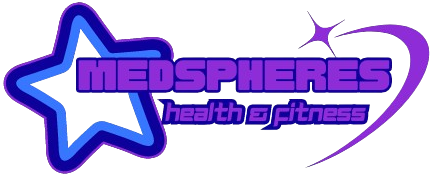Many of us unknowingly consume foods that can be harmful to our health on a daily basis. These foods, often hidden in plain sight, can contribute to various health issues over time. This article explores five dangerous foods that you might be eating every day and provides insights on how to make healthier choices.
What Are Processed Meats?
Processed meats include items like sausages, bacon, and deli meats that have been preserved by smoking, curing, or adding chemical preservatives. These methods enhance flavor and extend shelf life but also introduce harmful substances into the food.
Health Risks of Processed Meats
Regular consumption of processed meats has been linked to an increased risk of cancer, heart disease, and diabetes. The World Health Organization classifies processed meats as Group 1 carcinogens, meaning there is sufficient evidence that they cause cancer in humans. Additionally, the high levels of sodium and saturated fats in these meats can contribute to cardiovascular diseases.
2. Sugary Beverages
The Prevalence of Sugary Beverages
Sugary beverages, including sodas, energy drinks, and sweetened teas, are a common part of many people’s diets. These drinks are often marketed as refreshing and energizing, making them appealing choices for quenching thirst.
Impact on Health
These drinks are high in added sugars, which can lead to obesity, type 2 diabetes, and tooth decay. Consuming sugary beverages can cause rapid spikes in blood sugar levels, leading to insulin resistance over time. Moreover, the empty calories from these drinks contribute to weight gain without providing any nutritional benefits.
3. Trans Fats
Understanding Trans Fats
Trans fats are artificially created fats found in many processed foods, such as margarine, baked goods, and fried foods. They are produced through a process called hydrogenation, which solidifies liquid oils and increases shelf life.
Health Consequences of Trans Fats
Consuming trans fats can increase your risk of heart disease, stroke, and type 2 diabetes. Trans fats raise bad cholesterol (LDL) levels while lowering good cholesterol (HDL) levels, leading to clogged arteries and increased risk of cardiovascular events. Many countries have taken steps to ban or limit trans fats in food products due to their harmful effects.
4. High-Sodium Foods
Common Sources of High-Sodium Foods
High-sodium foods include canned soups, salty snacks, and fast food, which are often loaded with salt to enhance flavor and preserve shelf life. These foods are convenient and tasty but can contribute to excessive sodium intake.
Effects of Excessive Sodium Intake
Excessive sodium intake can lead to high blood pressure, heart disease, and stroke. Sodium causes the body to retain water, increasing blood volume and putting extra strain on the heart and blood vessels. Reducing sodium intake can help lower blood pressure and reduce the risk of cardiovascular diseases.
5. Artificial Sweeteners
What Are Artificial Sweeteners?
Artificial sweeteners are synthetic sugar substitutes found in many ‘diet’ or ‘sugar-free’ products. They are designed to provide sweetness without the calories of sugar, making them popular among those looking to reduce calorie intake.
Potential Health Risks
While marketed as a healthier alternative to sugar, some studies suggest that artificial sweeteners may be linked to metabolic disorders and increased appetite. These sweeteners can alter gut bacteria and affect glucose metabolism, potentially leading to weight gain and insulin resistance. More research is needed to fully understand their long-term effects on health.
How to Make Healthier Choices
Reading Food Labels
Learning to read and understand food labels can help you identify and avoid dangerous ingredients. Look for terms like “hydrogenated oils” for trans fats, “sodium” for salt content, and various names for added sugars.
Opting for Whole Foods
Choosing whole, unprocessed foods can significantly reduce your intake of harmful substances. Fresh fruits, vegetables, whole grains, and lean proteins provide essential nutrients without the added chemicals and preservatives found in processed foods.
Cooking at Home
Preparing meals at home allows you to control the ingredients and make healthier choices. Cooking from scratch can help you avoid hidden sugars, unhealthy fats, and excessive sodium. Plus, it can be a fun and rewarding way to explore new recipes and flavors.
Taking Control of Your Diet
By being aware of these dangerous foods and making informed choices, you can improve your health and well-being. Small changes in your diet can lead to significant improvements in your overall health, reducing the risk of chronic diseases and enhancing your quality of life.
Frequently Asked Questions (FAQ)
1. What are processed meats?
Processed meats include items like sausages, bacon, and deli meats that have been preserved by smoking, curing, or adding chemical preservatives.
2. Why are sugary beverages harmful?
Sugary beverages are high in added sugars, which can lead to obesity, type 2 diabetes, and tooth decay.
3. What are trans fats?
Trans fats are artificially created fats found in many processed foods, such as margarine, baked goods, and fried foods.
4. How does excessive sodium intake affect health?
Excessive sodium intake can lead to high blood pressure, heart disease, and stroke.
5. What are artificial sweeteners?
Artificial sweeteners are synthetic sugar substitutes found in many ‘diet’ or ‘sugar-free’ products.
6. Are artificial sweeteners safe?
Some studies suggest that artificial sweeteners may be linked to metabolic disorders and increased appetite.
7. How can I avoid dangerous foods?
Reading food labels, opting for whole foods, and cooking at home can help you avoid dangerous foods.
8. What are the health risks of processed meats?
Regular consumption of processed meats has been linked to an increased risk of cancer, heart disease, and diabetes.
9. Why should I reduce my sodium intake?
Reducing sodium intake can help lower blood pressure and reduce the risk of heart disease and stroke.
10. What are some healthier alternatives to sugary beverages?
Healthier alternatives include water, herbal teas, and natural fruit juices without added sugars.





0 Comments